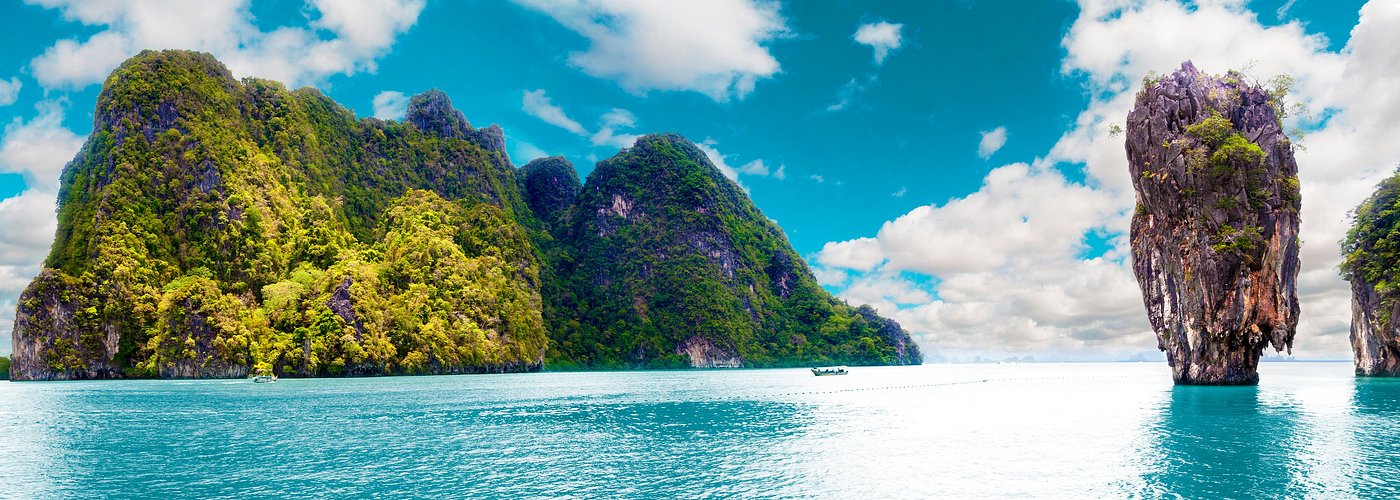
-
The 10th International Conference on Algorithms, Computing and Systems
December 18-20, 2026 ▪ Phuket, Thailand

Phuket, Thailand’s largest island in the Andaman Sea, is a premier tourist
destination renowned for its diverse, stunning beaches—from lively Patong to
tranquil northern spots—vibrant nightlife, rich Sino-Portuguese architecture,
and top-tier island-hopping, including Phang Nga Bay and Phi Phi Islands. Key
attractions include the Big Buddha, Wat Chalong temple, and Phuket Old Town.
Get there
What is the best way to get there?
Airport: Phuket only has one airport, the Phuket International Airport.
International and Domestic terminals are separate.
When is the best time to visit?
November to February: The weather in Thailand varies between hot, and really,
really hot. The hottest season runs from March through to June, with April and
May as the hottest months of the year.
The cool season normally runs from November through February and will still feel
hot to most visitors. Temperatures during this time typically range from 73
Fahrenheit (23 Celsius) to 86 Fahrenheit (30 Celsius).
Get around
Walk:
Most of the resort areas are small enough to walk around, with popular
resorts and hotels located close to the beach, restaurants and shopping areas.
Tuk-tuk: If your hotel isn't on
one of the main beaches, tuk-tuks are some of the best ways to get around. The
small vehicles can weave through the tiny streets with ease and are worth the
ride alone.
Drive: If you prefer exploring
Phuket on your own, there are plenty of places to hire cars or motorcycles.
However, if you’re looking to drive around Phuket, remember that they drive on
the left.
Bus: Songtaew refers to blue open-air buses that run between Phuket Town and the main
resorts, while air-conditioned mini buses service the Phuket Town area.
Are there
local customs I should know?
The King
The king is very highly regarded in Thailand, as evidenced by the pictures
displayed everywhere. Do not say or do anything disrespectful of the king or the
royal family, even to the extent of stomping on a Thai coin or banknote which
has been dropped and is rolling/blowing away. (It bears an image of the King's
head, and is highly insulting to be touched by your feet.)
Bangkok Taxies
When hailing taxis, it is common to keep your hand horizontal, fingers facing
down. Holding your hand with fingers up is considered rude.
Temples and Monks
When visiting temples, dress conservatively. Women particularly should wear long
skirts or trousers and cover their shoulders and knees. Many temples state as
you enter that photography is not permitted. Even if there is no sign, please be
respectful and consider whether it is appropriate to be taking flash photographs
in a place of worship. Even more so if monks are present worshipping!
Shoes
Always remove your shoes when entering temples (the same rule applies when
entering a person's home), and do not sit with your feet towards the Buddha. Sit
either cross-legged or with your feet tucked behind you. In many Asian cultures,
the feet are considered the lowest, dirtiest part of the body, and the head the
highest. So do not point to things with your feet, hold doors open with your
feet, point your feet to the Buddha images, or point at or touch peoples' heads.
Under no circumstances should a woman ever touch a monk.
Attractions
 |
 |
 |
||||
|
Rawai Beach - Lon Island |
|
Wat Chalong (Wat Chaitaram) |
Siam Niramit, Phuket |
|
||
 |
 |
 |
||||
|
Aquaria Phuket |
Phuket Old Town |
Peranakan Museum |
|